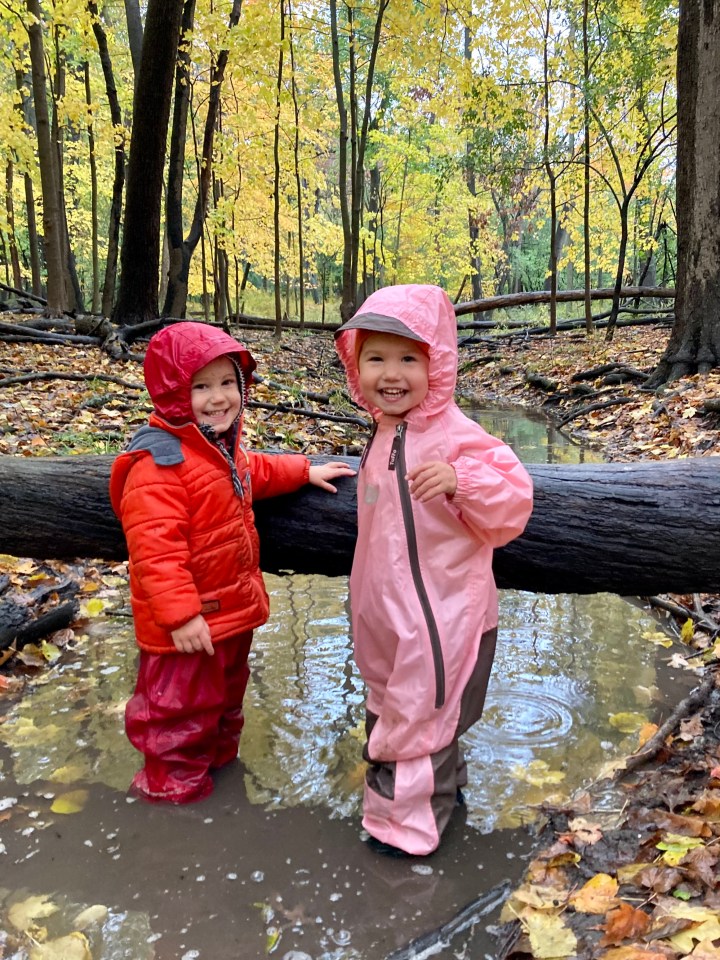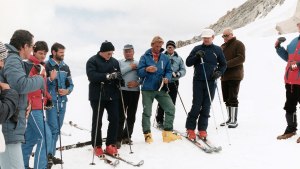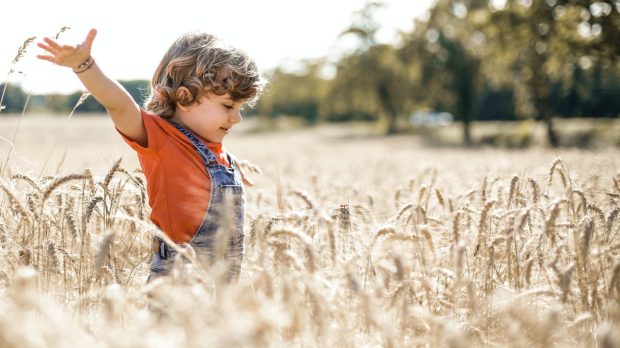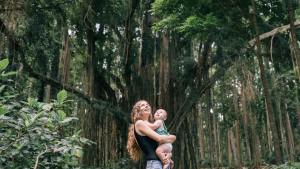“Is this a normal amount of homework for a three-year-old?” a friend texted me recently.
Honestly, I was concerned at what I was seeing. My friend had included a photo showing a small stack of worksheets that her preschooler had brought home that day and was expected to complete and bring back to school the next day.
“I really don’t think she should be getting homework in preschool at all,” I wrote back.
But it’s understandable why my friend, and apparently her daughter’s teacher, thought a preschooler should have a pile of homework. It’s a widespread but very unfortunate misconception that doing lots of seated academic work at a young age gives kids an educational advantage.
The reason I felt so concerned was because I had been in my friend’s shoes once. I used to think that the best thing I could do for my kids was to start “real schoolwork” at a young age.
So I attempted to teach my oldest to read at age three, organized an academically intense preschool co-op, and implemented a regimen of worksheets and flashcards.
But all this furor was short-lived. My oldest, a very active and energetic little boy, responded to my efforts with dogged resistance.
I had to reassess what I was doing and why. And that reassessment was the best thing that could have happened to us as a homeschooling family.
Faced with a preschooler who acted as though he were allergic to worksheets, I was forced to do some real research about early childhood education, instead of simply assuming that “the earlier, the better.” It turns out my assumption could not have been more wrong.
Research consistently finds that early academic training does not have any lasting benefits. In fact, worse than that, it can produce long-term harm, not only academically but also in terms of social, emotional, and even behavioral development.
Instead, what’s best for young children is outdoor time, reading aloud, and an abundance of unstructured play.
Armed with my newfound knowledge, I made a number of changes. I swapped out the worksheets for preschool art and building supplies. I ditched the flashcards in exchange for armloads of beautiful, classic picture books from our local library. And I made it a priority to get outside as much as we could.
My kids began to thrive with this new approach, and I felt happier too. I wish I had known to do things this way from the beginning, but I’m really glad that my younger children will benefit from this approach right from the start.
I have been thinking a lot about all this lately because of recent research showing that some preschool programs have harmful long-term effects:
By 6th grade the pre-k kids were doing worse all around: Worse on reading, math and science scores, more learning disorders, and more discipline problems, including serious ones that got them suspended.
The problem isn’t preschool itself. It’s how it’s being implemented. Preschool programs that emphasize playtime and being outdoors are actively beneficial.
But in a cruel irony, these play-based programs are often the exclusive province of those who can afford them:
One theory is that the free pre-k doesn’t look like pricey pre-k. Well-off parents usually send their kids to programs that have lots of time for art, music and, especially, unstructured play. Heck, the richest kids get to play in the forest with sticks and mud.
There is something incredibly problematic about a system in which getting to play with mud and sticks in the forest is a privilege for those who can afford it. All children deserve the benefits of free play and time outdoors, especially kids who are at risk.

Just as I did for my kids, we as a society need to stop what we’re doing and reassess. Why are we continuing to push a developmentally inappropriate approach when what works best is also what’s simplest and most natural?
If you don’t have a preschooler, you might be thinking that this doesn’t really matter to you. But early childhood education is a national concern, as today’s preschoolers are our future leaders. Excellent preschool programs are an investment in our future as a nation.
As parents, let’s speak up about this: If we have options, let’s choose play-based programs or even forest schools if they’re available. If we don’t have options, let’s voice our concerns and share the research with our kids’ teachers and other parents.
One very simple step we can all take is to opt out of homework entirely for children in preschool and kindergarten. This frees up their after-school hours so they have time to benefit from playing outside whether they attend an academic or play-based preschool.
If we have more influence, perhaps as a school board member, school administrator, PTA member, or public official, how we can use that position to benefit all the children of our community? What would it take to give the children real opportunities for free play and time outdoors? Perhaps it means reallocating budget funds to rain boots and mittens, or creating a nature playground.
Outdoor playtime and reading aloud: It’s what our kids need most. If we don’t speak out to benefit our children, who will? Let’s let our children be little, forget about the too-early academics, and let them play.



